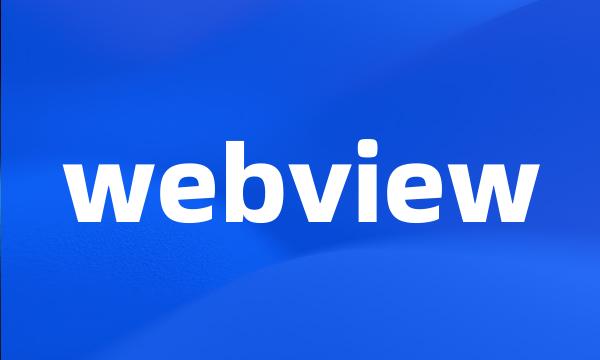webview
- 网络Web视图
 webview
webview-
In this article , I will focus on the WebView approach .
本文我将重点介绍WebView方法。
-
The WebView is a fairly complex class that can be highly customized .
WebView是一个相当复杂的类,可高度定制。
-
The method creates the appropriate WebView dialog .
该方法创建适当的WebView对话框。
-
In this way , the Java code can execute JavaScript code defined in the WebView .
这样,Java代码就可以执行WebView中定义的JavaScript代码了。
-
For the purposes of this application , the WebView control is somewhat minimally deployed .
对于此应用程序的目的来说,WebView控件已经进行了最低限度的部署。
-
To cause the WebView control to navigate to a page , you have a couple of different options .
要导致WebView控件导航到一个页面,可以采用几种不同的方式。
-
For a somewhat more complex example , you are encouraged to walk through the code sequence when the Dynamic button is selected in the WebView .
对于一个稍微复杂一点的例子,鼓励您好好看一下Dynamic按钮在WebView中被选中时的代码段。
-
You will revisit the Button setup code later in this article ; for now focus on the setup of the WebView control or widget .
本文稍后还会详细介绍Button设置代码,现在将重点放在WebView控件或小部件的设置上。
-
Note that if the single sign-on method is not defined or the native Facebook application is not present , the SDK will default to the WebView approach for authentication / login .
注意,如果没有定义单点登录方法,或者没有给出原生Facebook应用程序,那么SDK将默认对身份认证/登录使用WebView方法。
-
For example , the WebView contains an id of calculator ; however , the TextView does not contain an id as its value is not changed throughout the lifetime of the application .
例如,WebView包含calculator的一个id;但是TextView不包含id,因为它的值在应用程序的整个生命期内是不变的。
-
The SDK provides two methods to authenticate , one that is referred to as single-sign on which uses , if installed , the native Facebook application dialogs , and the default WebView approach to dialogs .
SDK提供两种方法进行身份认证,一种称之为单点登录,如果安装了的话,它使用原生的Facebook应用程序对话框,另一种是默认的WebView方法。
